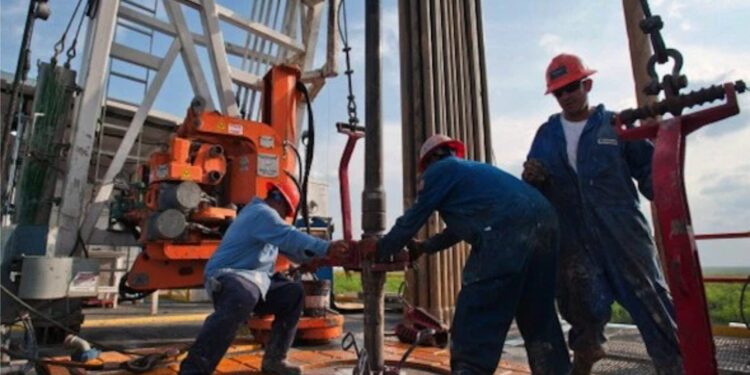By Milcah Tanimu
Recent data from Statista reveals a significant decline in Nigeria’s crude oil production over the past 23 years. At its peak, Nigeria produced 2.5 million barrels per day (mbpd), but by August 2023, this figure has dwindled to 1.1 mbpd.
A closer look at the historical data unveils a nuanced perspective. In the year 2000, Nigeria’s crude oil production averaged 2.15 mbpd, followed by an increase to 2.26 mbpd in 2001. Subsequent years witnessed fluctuations, with production ranging from 2.08 mbpd in 2002 to a peak of 2.52 mbpd in 2005.
However, this zenith was short-lived. From 2006 to 2016, a gradual decline set in, with production dropping to 1.89 mbpd in 2016. While there were minor recoveries in 2017 and 2018 (1.96 mbpd and 2 mbpd, respectively), the trend turned sharply downwards.
In 2022, Nigeria’s crude oil production plummeted to 1.45 mbpd, with a particularly concerning low point in August 2022, when the country produced only 972,000 barrels per day due to crude oil theft activities.
For 2023, data from the Nigerian Upstream Petroleum Regulatory Commission (NUPRC) indicates production ranging from 1 mbpd in April 2023 to a peak of 1.26 mbpd in March 2023, considering oil production excluding condensates.
This ongoing decline underscores the urgent need to address the factors contributing to this trend and devise strategies for a more sustainable and robust oil production landscape in Nigeria’s future.
In comparison, Brazil’s ANP oil agency recently announced that the country produced a record-high 4.482 million barrels of oil equivalent per day, emphasizing the urgency for Nigeria to elevate its crude oil production.
Several factors drive this imperative, including the need to meet the ambitious 2023 budget oil production benchmark of 1.69 million barrels per day, ensuring sufficient stock for existing modular refineries, and bolstering the country’s revenues to address multifaceted government challenges.
Sources familiar with Nigeria’s oil industry dynamics highlight a critical shortfall in proactive efforts to boost oil production. They emphasize a historical complacency among the government and key stakeholders, content with past production rates but without laying the groundwork for necessary investments and infrastructure to increase production and combat theft within the industry.
This void in foundational initiatives places the country at a pivotal juncture, demanding immediate, strategic interventions to revitalize the oil sector. The imperative lies in this critical juncture where concerted actions can pave the way for a financially fortified and self-sustained nation.





